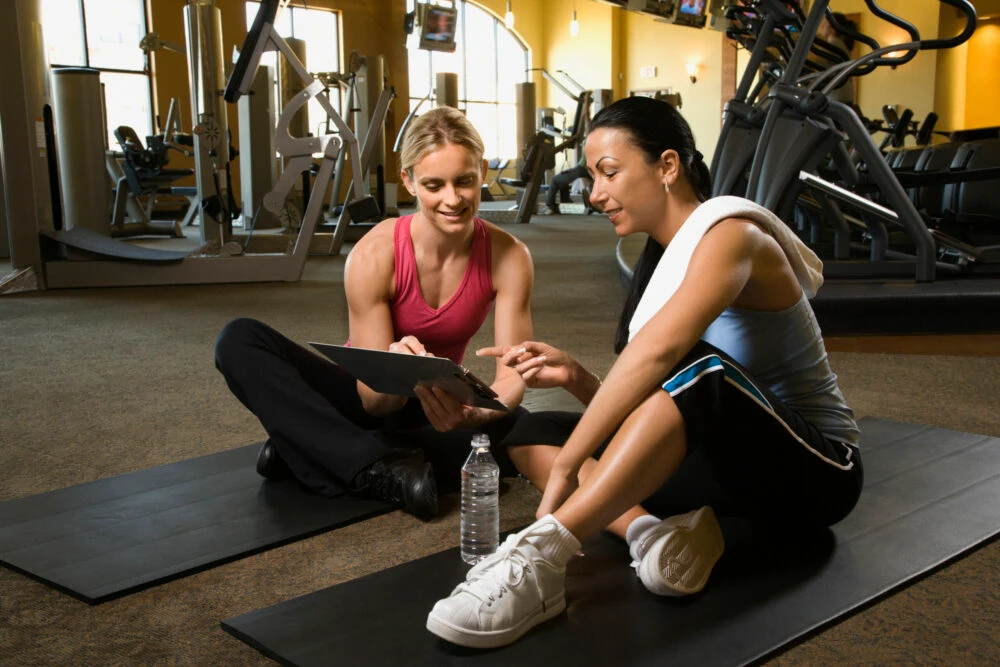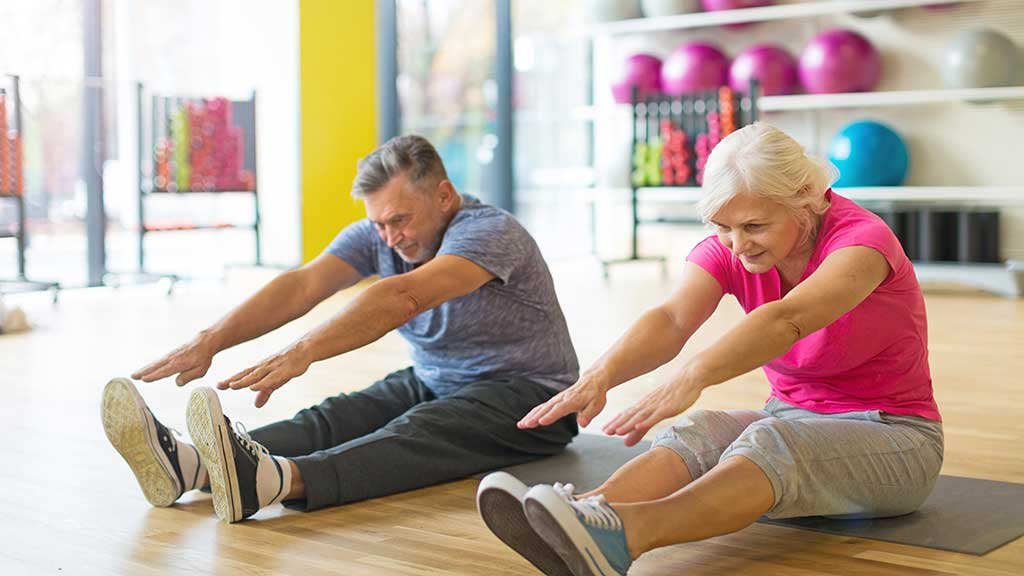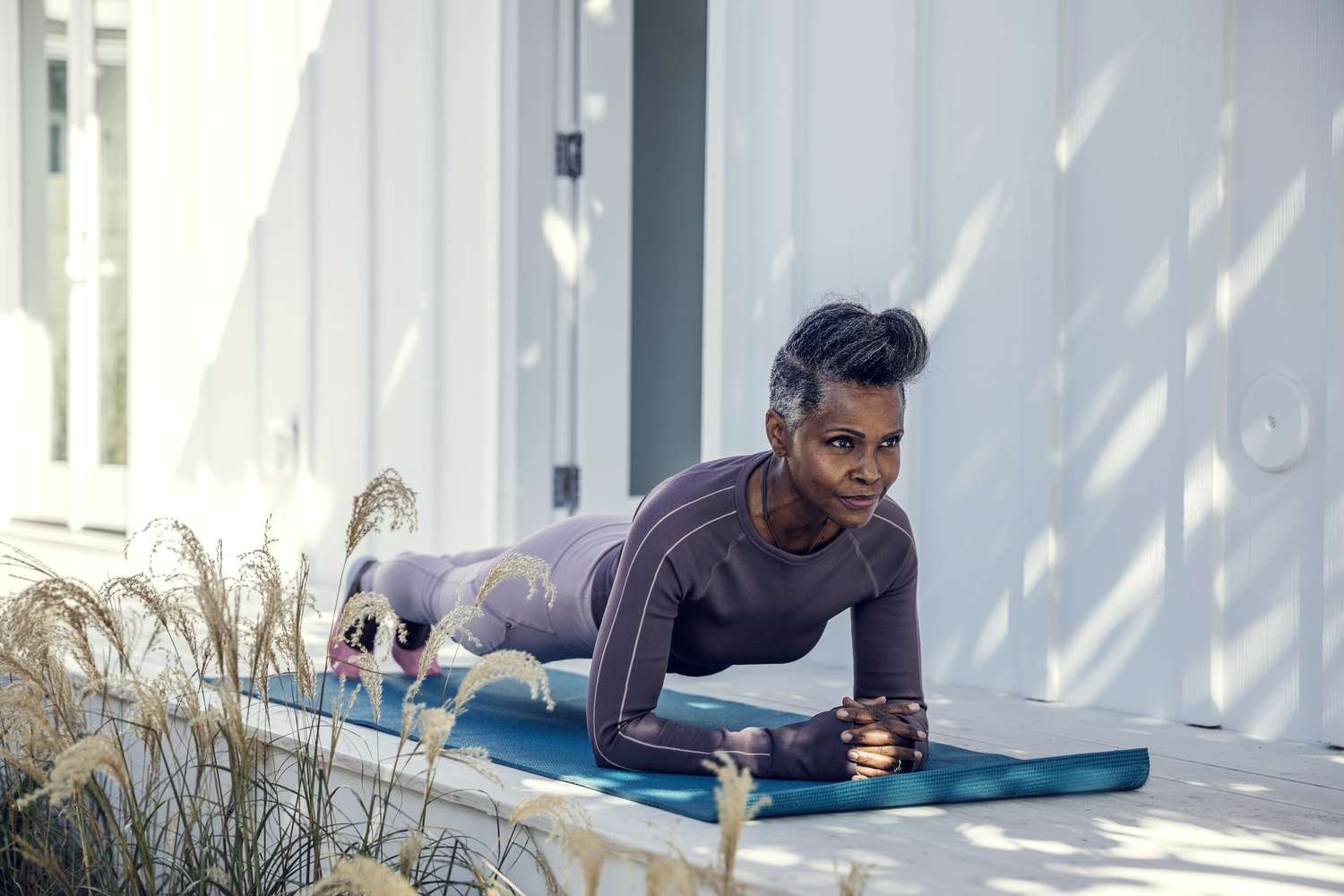Regular exercise offers a variety of mental health benefits, particularly for women over 50. According to the National Institute on Aging, staying active can help combat feelings of anxiety and depression while improving mood, cognitive function, and sleep quality.
This age group can particularly benefit from aerobic exercises, strength training, and mind-body activities like yoga and tai chi, which boost mental well-being. Engaging in physical activity also stimulates the release of endorphins, the brain’s “feel-good” chemicals, and can help reduce stress. Incorporating exercise into your routine can be a powerful tool in enhancing mental health and overall quality of life as you age.
Table of Contents
Regular physical activity provides a host of health benefits, from reducing cholesterol to trimming your waistline. But exercising can also boost your mood, help you sleep better at night, and enhance memory and concentration.
It’s important to start at a level that is comfortable for your body and gradually increase the intensity and duration of exercise over time. Read on to learn more about the mental health benefits of exercise for women over 50.
Boosts Mood and Confidence
Regular exercise does more than strengthen muscles, bones and joints; it also enhances mood and improves overall mental health. Physical activity releases endorphins and other natural brain chemicals that improve mood, reduce stress and boost self-esteem. It also helps manage symptoms of depression and improves sleep quality. In addition, it improves the ability to think clearly and increase alertness.
To reap these mental health benefits, it’s important to choose exercises that are appropriate for your age and fitness level. It’s also important to find a workout routine that you enjoy. If you don’t enjoy your workout, it will be more difficult to stick with it. It’s also important to listen to your body and stop if an exercise causes pain. Pushing through pain could result in injury, making it harder to remain active.
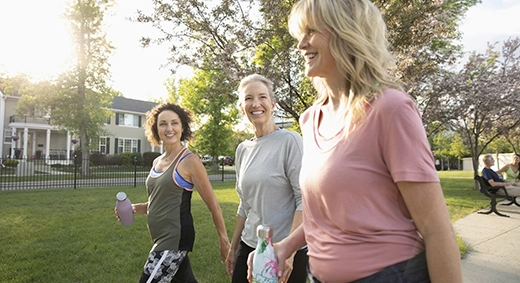
Women over 50 should aim for at least 30 minutes of moderate-intensity exercise most days of the week. Aim for a combination of aerobic exercise and strength training to maintain muscle mass, bone density and flexibility. Walking, swimming and yoga are great low-impact activities for older adults, as they’re easy on the joints. For strength training, try exercises such as squats, lunges, planks and chair exercises. It’s also recommended to start with lighter weights and gradually increase your weight over time.
Manages Stress and Anxiety
If you’re a woman over 50 who struggles with the emotional impact of menopause, exercise may help relieve your symptoms. In fact, a recent study found that women who regularly met physical activity guidelines were less likely to develop depression or anxiety.
For those with low-to-moderate levels of anxiety, 15 to 30 minutes of light or moderate intensity exercise three times a week is enough to significantly reduce symptoms. Exercise can boost serotonin and dopamine, which are natural chemicals in the brain that promote a positive mood. It can also improve sleep quality, a common problem associated with anxiety.
The benefits of exercise for stress and anxiety are so significant that many psychologists recommend exercise to their patients. Even if it’s challenging to get out of bed when your joints are achy and you’d rather snuggle up with a good book, making exercise a priority will help you feel better and lead to other healthy habits like eating well and socializing with others.
For those with high levels of anxiety, it’s important to speak with a therapist or psychiatrist about treatment options, which may include medication. In addition, you can make lifestyle changes to manage your symptoms. For instance, try to avoid caffeine and nicotine, which can increase your heart rate and contribute to stress and anxiety. You can also participate in formal support groups or look for stress-relieving activities, such as meditation or yoga.

Improves Sleep Quality
A good night’s sleep is vital for overall mental health, and exercise can help improve your sleep quality. Regular physical activity helps to regulate your body’s circadian rhythm, so you fall asleep more easily and stay asleep longer at night. It also helps you wake up feeling refreshed and energized in the morning.
Poor sleep is linked to many health conditions, including depression, anxiety, and cardiovascular disease. In addition, chronic sleep problems can increase the risk of dementia and Alzheimer’s disease. Research shows that regular exercise can reduce the risk of developing these disorders, improve mood, and promote a better quality of life.
Despite the obstacles of menopause, such as hot flashes and night sweats, exercising regularly is very important for older women’s health. The key is to start at a low level of exercise and gradually increase your intensity and duration over time.
In this meta-analysis of RCTs, physical exercise was found to significantly improve sleep in both middle-aged and older women. However, the heterogeneity between studies suggests that additional well-controlled RCTs with a variety of exercise types and durations, objective measures of sleep (such as polysomnography parameters), and comparisons of baseline severity of insomnia are warranted. This will allow a deeper exploration of the effect of exercise on the improvement of sleep in this population.
Enhances Memory and Concentration
Women over 50 may struggle with a variety of mental health issues including depression, anxiety and memory loss. While some of these problems are due to aging, the good news is that exercise can help alleviate many of them. Regular exercise triggers the release of feel-good brain chemicals such as endorphins and serotonin, which boost mood and improve overall well-being.
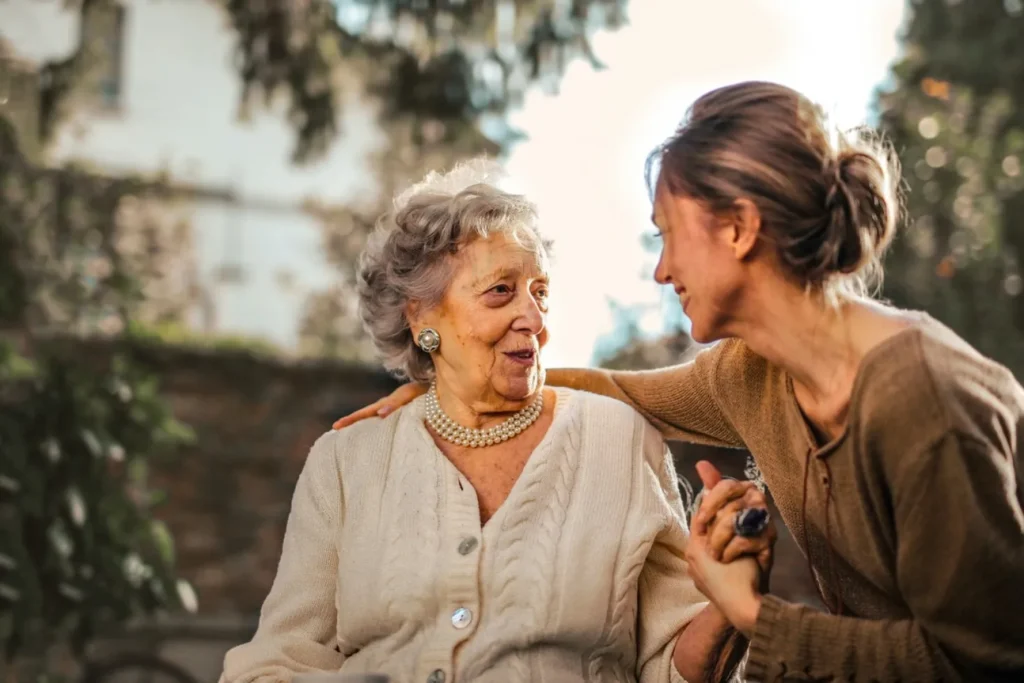
Exercise also stimulates the growth of new brain cells and enhances the performance of existing ones. This helps reduce the risk of conditions that can negatively impact memory, such as Alzheimer’s disease and dementia. Research has shown that regular exercise improves episodic memory, which is our ability to bind together events, people and places. It also improves spatial navigation, which is our brain’s ability to remember everyday things such as where we parked the car.
While any type of physical activity can benefit mental health, strength training exercises are recommended for older adults because they improve muscle mass and bone density. Some good options include squats, lunges, push-ups and planks. It is important to always start with light weights and gradually increase your workout intensity as you get stronger.
It is important to remember that it’s never too late to make exercise a part of your lifestyle. Studies have shown that just a few months of regular exercise can provide significant mental health benefits for older adults.
Disclaimer: The content in this article is based on my personal experiences and is intended for informational purposes only. I am not a doctor or medical professional. Always consult with a healthcare provider before making any changes to your exercise routine or lifestyle, especially if you have any health concerns or conditions.
My mission is to celebrate the wisdom, resilience, and vitality of women as they navigate menopause, embrace life’s transitions, and step confidently into the next phase. Whether you’re exploring ways to stay fit, looking for health tips to prevent common issues, seeking inspiration for a fulfilling lifestyle, or simply wanting guidance on diet, I’ve got you covered.
Dive into our articles on fitness, health, lifestyle, nutrition and more to find the support and insights you need!

